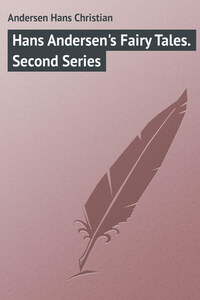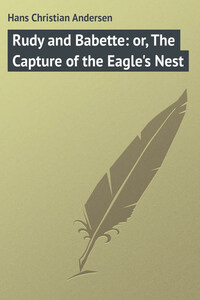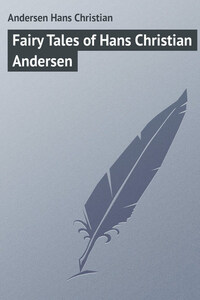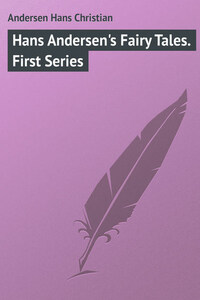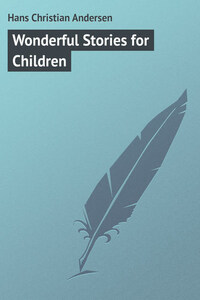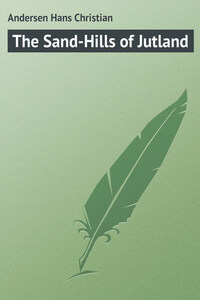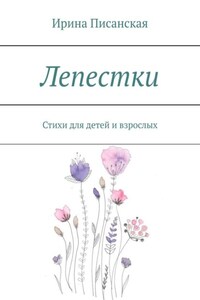THE present volume is the second of the selected stories from Hans Andersen. Together the books include what, out of a larger number, are the best for children's use. The story-telling activity of this inimitable genius covered a period of more than forty years. Besides these shorter juvenile tales, there are a few which deserve to survive. "The Ice Maiden" is a standard, if not a classic, and "The Sandhills of Jutland" was pronounced by Ruskin the most perfect story that he knew.
It adds a charm to the little stories of these two volumes to know that the genial author traveled widely for a man of his time and everywhere was urged to tell the tales himself. This he did with equal charm in the kitchens of the humble and in the courts and palaces of nobles.
As was said in the preface to the first volume, wherever there are children to read, the stories of Hans Christian Andersen will be read and loved.
THE flax was in full bloom; it had pretty little blue flowers, as delicate as the wings of a moth. The sun shone on it and the showers watered it; and this was as good for the flax as it is for little children to be washed and then kissed by their mothers. They look much prettier for it, and so did the flax.
"People say that I look exceedingly well," said the flax, "and that I am so fine and long that I shall make a beautiful piece of linen. How fortunate I am! It makes me so happy to know that something can be made of me. How the sunshine cheers me, and how sweet and refreshing is the rain! My happiness overpowers me; no one in the world can feel happier than I."
"Ah, yes, no doubt," said the fern, "but you do not know the world yet as well as I do, for my sticks are knotty"; and then it sang quite mournfully:
"Snip, snap, snurre,
Basse lurre.
The song is ended."
"No, it is not ended," said the flax. "To-morrow the sun will shine or the rain descend. I feel that I am growing. I feel that I am in full blossom. I am the happiest of all creatures, for I may some day come to something."
Well, one day some people came, who took hold of the flax and pulled it up by the roots, which was very painful. Then it was laid in water, as if it were to be drowned, and after that placed near a fire, as if it were to be roasted. All this was very shocking.
"We cannot expect to be happy always," said the flax. "By experiencing evil as well as good we become wise." And certainly there was plenty of evil in store for the flax. It was steeped, and roasted, and broken, and combed; indeed, it scarcely knew what was done to it. At last it was put on the spinning wheel. "Whir, whir," went the wheel, so quickly that the flax could not collect its thoughts.
"Well, I have been very happy," it thought in the midst of its pain, "and must be contented with the past." And contented it remained, till it was put on the loom and became a beautiful piece of white linen. All the flax, even to the last stalk, was used in making this one piece.
"Well, this is quite wonderful," said the flax. "I could not have believed that I should be so favored by fortune. The fern was not wrong when it sang,
'Snip, snap, snurre,
Basse lurre.'
But the song is not ended yet, I am sure; it is only just beginning. How wonderful it is that, after all I have suffered, I am made something of at last! I am the luckiest person in the world – so strong and fine. And how white and long I am! This is far better than being a mere plant and bearing flowers. Then I had no attention, nor any water unless it rained; now I am watched and cared for. Every morning the maid turns me over, and I have a shower bath from the watering-pot every evening. Yes, and the clergyman's wife noticed me and said I was the best piece of linen in the whole parish. I cannot be happier than I am now."
After some time the linen was taken into the house, and there cut with the scissors and torn into pieces and then pricked with needles. This certainly was not pleasant, but at last it was made into twelve garments of the kind that everybody wears. "See now, then," said the flax, "I have become something of importance. This was my destiny; it is quite a blessing. Now I shall be of some use in the world, as every one ought to be; it is the only way to be happy. I am now divided into twelve pieces, and yet the whole dozen is all one and the same. It is most extraordinary good fortune."
Years passed away, and at last the linen was so worn it could scarcely hold together. "It must end very soon," said the pieces to each other. "We would gladly have held together a little longer, but it is useless to expect impossibilities." And at length they fell into rags and tatters and thought it was all over with them, for they were torn to shreds and steeped in water and made into a pulp and dried, and they knew not what besides, till all at once they found themselves beautiful white paper. "Well, now, this is a surprise – a glorious surprise too," said the paper. "Now I am finer than ever, and who can tell what fine things I may have written upon me? This is wonderful luck!" And so it was, for the most beautiful stories and poetry were written upon it, and only once was there a blot, which was remarkable good fortune. Then people heard the stories and poetry read, and it made them wiser and better; for all that was written had a good and sensible meaning, and a great blessing was contained in it.
